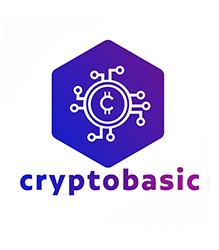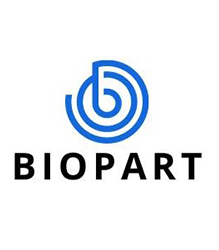
Kopalnie Krypto Team - Wednesday 9 August 2023
Public and private blockchains - what are the differences?
In our publications, we often emphasize the public aspect of the Chia Network blockchain. Since it's public, does that mean private blockchains also exist? Absolutely, yes. In this article, we will delve into both of these types. We will also discuss their applications and areas where they excel the most.
Public blockchain: the gateway to freedom!
Let's start with something we're somewhat familiar with. A public blockchain has the distinctive quality of being... well, public. Anyone can use it without needing a special invitation or permission. This has some very positive consequences, notably transparency. Every user of a public blockchain has access to its recorded data, including the complete transaction history. This essentially means that Mr. Smith can conduct his own audit.
So, we've established that public blockchains are inherently open. Anyone can join in by executing or verifying transactions. More users equate to greater decentralization. Public blockchains have a broader scope than their private counterparts. Consequently, they're more resilient to censorship and manipulation.
How does it work behind the scenes? Well, most of our readers likely already know this, but a little memory refresh can be helpful. The integrity of transactions in a blockchain is verified by specialized computers, known as miners. How do they do it? Through the consensus mechanism. The most well-known ones are Proof of Work, Proof of Stake, and our favorite - Proof of Space and Time.
In summary, public blockchains provide users with the assurance that the data within them is credible. Anyone can access the transaction history, conduct their own verifications, or even venture into building their own miner and uphold the network's integrity.
And what about drawbacks? Surely, there are some, right? Indeed - everything has its price. Public blockchains are criticized, among other things, for scalability issues. This happens because they employ consensus mechanisms to verify transactions. In simpler terms, more users in the network mean more transactions. More transactions lead to longer processing times. Another issue revolves around privacy challenges. It's understandable that users wishing to store sensitive data (like financial or medical information) on a blockchain might consider transparency a downside. It makes sense that not everyone should have access to someone's personal data. Lastly, the consensus mechanisms themselves are problematic for public blockchains. Verifying nodes (miners) consume additional electrical energy, and that's why public blockchains often receive criticism for their negative environmental impact.
However, these aforementioned drawbacks don't make public blockchains inherently bad. There are projects that to a greater or lesser extent mitigate the mentioned inconveniences. One of them is Chia Network, and you can learn about its advantages from the remaining articles on our platform.
Private blockchain: no entry without permission!
Now let's do a 180-degree turn. What do we see there? A private blockchain, the restrictive relative of its public counterpart. The principle of its operation is quite similar. However, only select entities have the ability to view and interact with the private blockchain. Each participant in the network must be authorized. Furthermore, they must act as a verifying and transaction-registering node. This is why private blockchains are perceived as offering a higher level of privacy. Only a closed circle of users has access to them.
Private blockchains also address the issues public blockchains face, as described earlier. This is because they utilize a broader array of consensus mechanisms. However, these methods are tailored for specific applications, so they might not be suitable for general use. In essence, private blockchains are less versatile than their public counterparts. Nonetheless, this contributes to increased scalability and transaction processing speed. This, in turn, may encourage enterprises to adopt blockchain technology for their own needs. Individual users also gain an enhanced level of privacy and control.
Private blockchains are not without their drawbacks. They are mainly criticized for their centralization, which contradicts the essence of blockchain technology. This introduces a level of risk, as users must place their trust in the organization managing the blockchain. Data integrity verification within the network is also contentious - independent verifying entities are somewhat constrained. This means that private blockchains possess a lower resistance to manipulation.
Public or private? Which blockchain is better?
It's not about determining which type of blockchain is better. Each type has its own strengths and weaknesses. A public blockchain might excel where a private one wouldn't, and vice versa.
Let's begin with public blockchains. They are most well-known in the world of cryptocurrencies. Networks built upon them offer a wide range of applications, mainly associated with decentralized finance. But there's more to it! Public blockchains are characterized by transparency and are open to auditing by anyone. This makes them ideal for electronic voting systems. In other words, they facilitate the creation of solutions that counteract the shortcomings of existing democratic systems.
So where do private blockchains fit in? They find their place wherever privacy is paramount. This is especially true for storing sensitive data. Such networks are suitable for supply chain management, international transactions, or medical documentation. Private blockchains might also be fitting for large corporations that have the means to maintain and verify the entire network with just a few nodes.
How about mixing everything in one pot?
We've explored the pros and cons of public and private blockchains. How do they relate to the Chia Network ecosystem, which we're avidly promoting for its benefits? After all, the Chia blockchain is public - there's no doubt about that. That's true, and according to theory, it should possess the drawbacks of open blockchains. However, the Chia Network team is forging partnerships with businesses, which inherently favor private blockchains. How can a public blockchain reap the benefits found within its private counterpart?
This is thanks to the Virtual Private Blockchain concept introduced by Chia Network. What's this invention all about? It's nothing other than the fusion of the strengths of private and public blockchains. This technology achieves an excellent balance between the security and decentralization of public networks and the privacy and transaction speed offered by private blockchains. Thanks to this innovation, we can anticipate widespread adoption of the ecosystem in corporate environments.





















